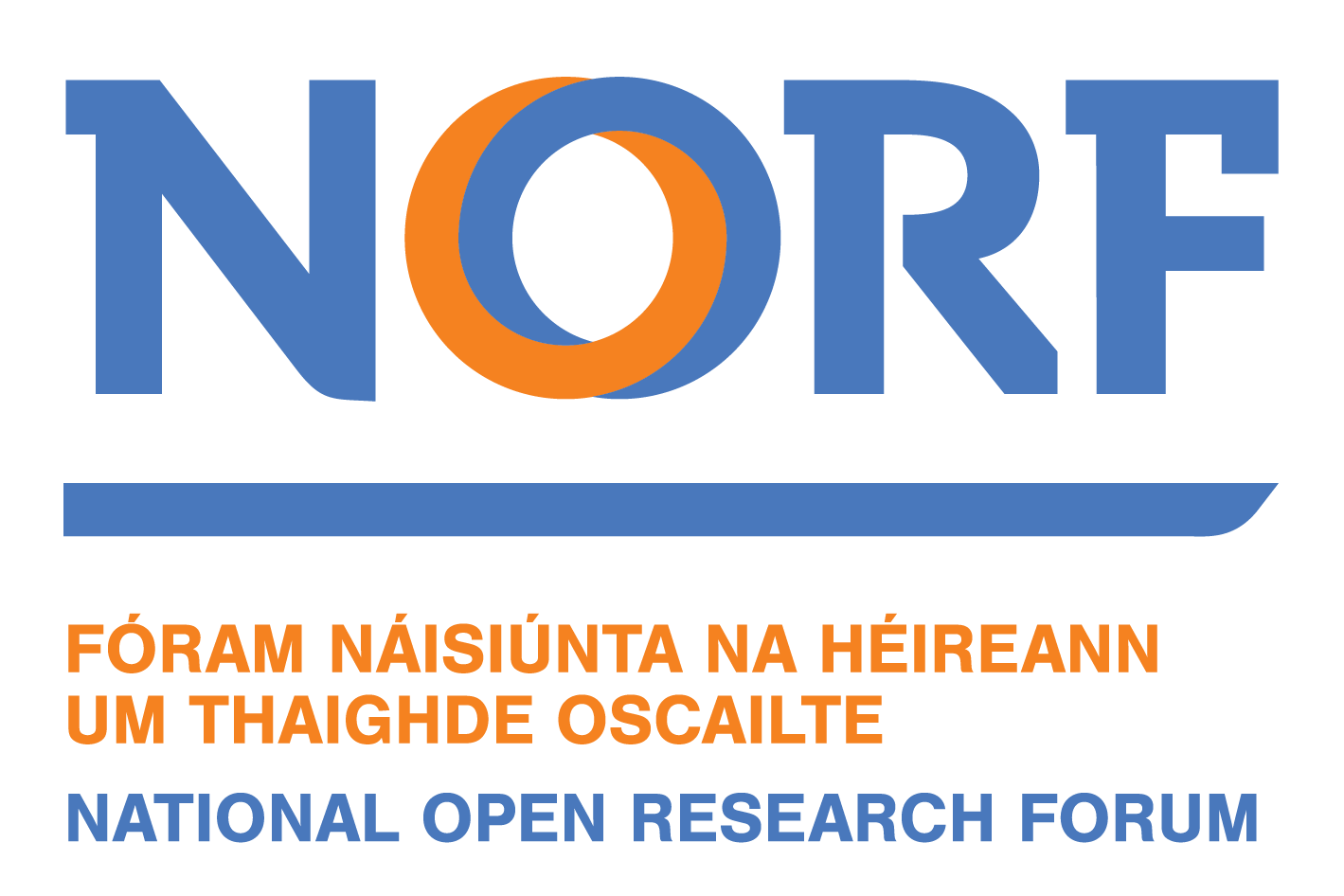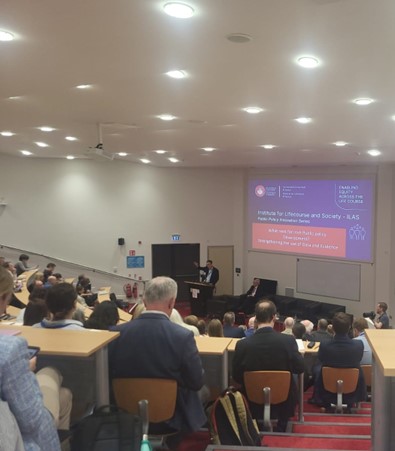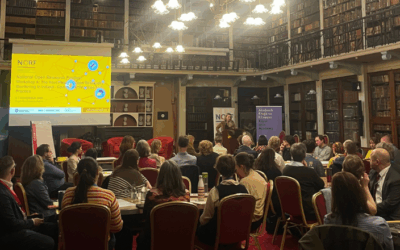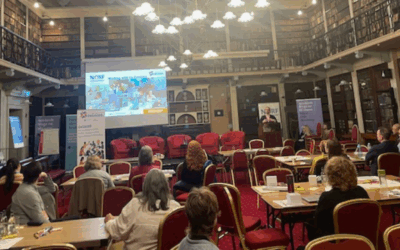In this blog Patrice McCormack and Ian Marder of the NORF funded project, Embedding a culture of interdisciplinary open research in Ireland’s criminal justice sector through a national Researcher-Practitioner/Policymaker Partnership, report on the conference, “What next for Irish Public Policy Development?”, at ILAS Auditorium, University of Galway, 28 May 2024.
Our NORF-funded project seeks to embed a culture of interdisciplinary open research in criminal justice in Ireland (https://norf.ie/open-research-in-criminal-justice/). This draws on the applied policy aspects of the open research agenda, namely ensuring that research is shared in ways that benefit society, and that research processes involve people beyond universities. In our field of criminology, this involved developing a criminal justice research partnership with researchers, policymakers and practitioners from the criminal justice, higher education and community sectors to determine collectively the best ways of achieving this goal. As part of these efforts, we are engaging with wider debates and activities around ‘evidence-for policy’ in Ireland to learn how people researching crime and justice issues from any discipline can ensure their work is effectively disseminated and translated into policy and practice.
To that end, one of us (Patrice) participated in a short seminar hosted by the University of Galway: What Next for Irish Public Policy Development? Strengthening the Use of Data and Evidence. The purpose of the event was to focus on research and evidence as a key pillar in developing effective public policy and foster debate about next steps in a vital and challenging agenda of change. This blog summarises the event and draws connections to open research.
The event set out to address three main questions: How do we foster and support effective public policy in Ireland? How might we best use data and research evidence to inform policy decisions? ‘What’s next’ for our system of public policy?
Prof. Ciarán Ó hÓgartaigh (University of Galway) opened the seminar with a warm welcome to the packed auditorium. He reiterated the openness and desire among academics regarding engaging with and impacting public policy by strengthening the use of data and evidence. Higher education institutions, he noted, are committed to collaboration for the good of the wider public. Indeed, all academics fundamentally work for the public good, and academics can support policymaking by providing evidence and supporting engagement with the wider public and experts by experience. Simon Harris joined the discussion by video to assert that data and evidence are critical to policy, and that using evidence to develop policy was a priority for the government.
Session 1 commenced with John McKeon (Department of Social Protection) providing a personal insight regarding the policy development process. He said that evidence should be representative of all people and social classes and that we rely too heavily on research from outside Ireland. The academic community and other stakeholders may develop local evidence and determine how to translate evidence into policy in ways that reflect the Irish context. This is essential, he argued, to ensure that the civil service is prepared for social change.
Next, Prof. Ngaire Woods (Oxford University) stated that universities can support governments by educating high-quality future public policymakers, doing research that is relevant to government, and bringing policymakers and academics together. She outlined adversities caused by a “toxic” online space and expressed that governments must commence creating a safe, secure space for information sharing, ensure information is legitimate and verified, and move from vertical to more horizontal forms of information sharing.
A panel discussion followed whereby Elizabeth Canavan (Dept of the Taoiseach), Jasmina Behan (DPER), Larry O’Connell (NESC) and Prof. Eilionóir Flynn (University of Galway) discussed how the government is trying to become nuanced, and how the public demands to be heard and involved. Maximising legitimacy, working with the community sector, and being diverse and representative, must be government priorities going forward.
Session 2 commenced with Padraig Dalton (CSO) discussing the challenges and opportunities of using data for policy development. He maintained that CSO data can provide many insights when employed as a strategic asset. He again highlighted online data as a governmental challenge, and argued that the CSO can and should be exploited as a data centre to explore issues like inequality at national and subnational levels. He finished by contending that governments must think about data in a different way and organise their data in ways that are usable for everyone.
Dr Colm O’Reardon (DFHERIS) discussed challenges and opportunities of research evidence for policy development. He said that the ways in which policy is developed can change over time and that it has changed considerably in Ireland in recent years. Data cannot be evidence alone unless someone with expertise is enabled to analyse and interpret it. Academics and policymakers must gain a better understanding, he felt, of each other’s domains, and the development of a research capacity and network in the civil service will support a more open approach to policymaking. For example, government departments should publish research priorities to help the procurement of research and to involve more people in problem solving. In the final panel, Dr Mairead O’Driscoll (Health Research Board), Selina McCoy (ESRI), Dr. Philip Nolan (Science Foundation Ireland), and Prof. Kieran Walsh (University of Galway), discussed the use of rapid and longitudinal research to respond to social change.
Overall, there appeared to be consensus among senior officials that research evidence can have a positive influence on public policy, and there should be a greater connection between research, policy and practice to enable better outcomes for Irish society. We encourage all people involved in open research to consider the relationship between their work, and the need for research to be disseminated in ways that are most likely to inform policy and practice. Making research and data open access is not likely to be enough: policymakers and practitioners should also be involved in the processes by which research is designed, conducted and disseminated. We can benefit from engaging with policymakers and practitioners with an open mind, listening and learning about the opportunities to contribute to genuinely evidence-based approaches. At the same time, we must take advantage of these stated positions and hold policymakers to account for achieving the lofty goal of meaningfully integrating research evidence into the policymaking process.




